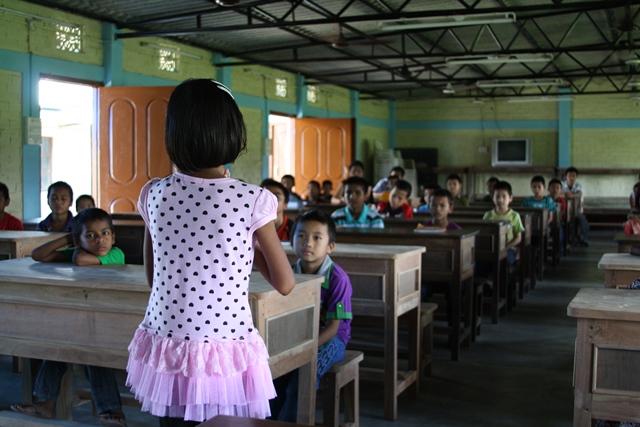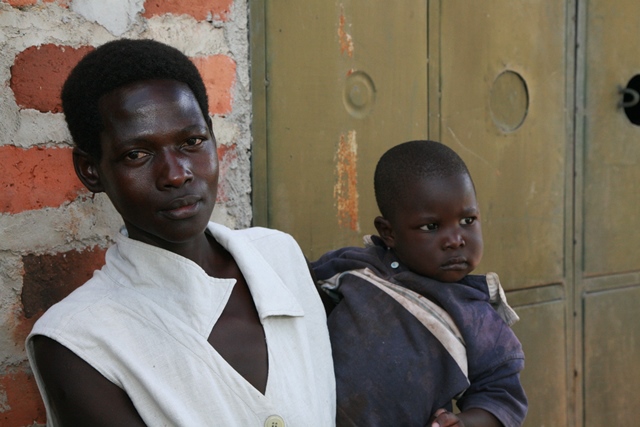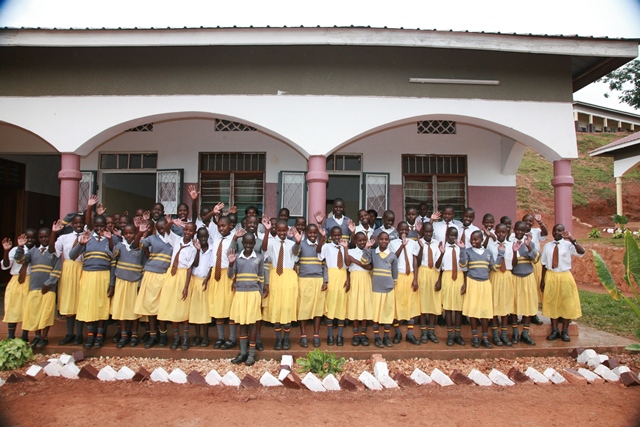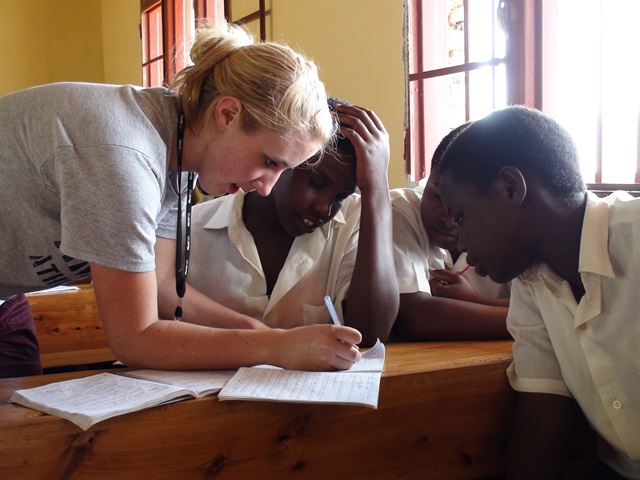It has been six weeks since the northern Nigerian extremist group, Boko Haram, kidnapped nearly 300 school girls in broad daylight. (Boko Haram literally translates to “Western-imposed thinking is forbidden by Islam”).
The sheer audacity of the abductions is perhaps one of the main reasons that images of empty school houses and the faces of distraught parents have regularly flickered across the evening news—but this certainly isn’t the first time girls have been the target of radical oppression.
At age 14, Pakistani teenager Malala Yousufzai was shot in the head by the Taliban simply for going to school.
In 1996, the Afghani Taliban made it against the law for girls to attend school past the age of 8. This law was rescinded in 2001, but crippled an entire generation of women from learning to read and write while figuratively securing the final nail to the coffin of Afghanistan’s economic demise.
To be sure, the Nigerian kidnappings shine a grim spotlight on a much larger issue: Girls in the developing world risk more to attend school than any other demographic in the world.
Whether the danger is physical, emotional, or psychological, these are risks that many girls are willing to take in order to gain an education.

In India, it is tragically common for girls to be humiliated and harassed on their walks to school. On a global scale, nearly half of all sexual assaults are committed against girls who are 15 and younger.
Even classrooms are unsafe. Thousands of girls are routinely forced by their teachers to perform sexual favors in exchanges for good grades. In Zambia, more than 2,000 cases of teacher rapes were reported in 2010 alone. Of these cases, only 240 teachers were convicted while thousands remain unreported altogether.
So what does reading have to do with all of this?
Learning to read and write in the developing world represents something far more radical than it does in the first world. While most of us are flipping through an overload of data on our smartphones, 793 million people around the world cannot read or write—lacking the basic foundation for life-long education and cognitive development.
There are countless benefits to educating girls, but here are three reasons in particular why investing in girls who read is arguably one of the most important causes of our time.
Girls who read are healthier.
Did you know that by receiving just one extra year of education, a girl will help reduce infant mortality by 5–10 percent and can reduce the spread of HIV/AIDS and other preventable diseases?

Interestingly enough, studies have suggested that an educated woman is more likely to marry at a time of her choosing, as opposed to forced or arranged marriages that usually arise out of poverty.
Practically, educated women understand the causes of disease and are committed to taking preventative measures for the sake of their health. They are better versed in proper hygiene, know the importance of immunizing their children, and are more apt to ask questions about health-related issues.
Literacy unlocks the possibility to know and understand oneself physically, emotionally, and psychologically, leading women to embrace balanced, holistic models of total health for themselves and their families.
As former U.N. Secretary General Kofi Annan famously said, “Literacy unlocks the door to learning throughout life, is essential to development and health, and opens the way for democratic participation and active citizenship.”
Girls who read contribute to the formation of an economy.
In the developing world, 42 percent of girls are not currently enrolled in school. That’s nearly half of all people from a generation relegated to the sidelines of influence in a society.
Not remarkably, providing a girl with one extra year of education beyond the average will boost her future wages by 20 percent.
An educated woman is more likely to start her own business, earning income that she almost always invests right back into her family to meet present and future needs.
Educated women also tend to value education more highly and eagerly work toward seeing that all of her children complete school.
An educated woman, therefore, is likely to cultivate an educated family. And for every educated family, a stronger, more stable economic community is built.

Ultimately, if all children in low-income countries left school with basic reading skills, 171 million people could be lifted out of poverty.
Girls who read are dangerous.
An educated person is a powerful person. And what group has been historically and systematically denied power in many societies since the dawn of human civilization?
Girls.
“Why are fanatics so terrified of girls’ education? Because there’s no force more powerful to transform a society. The greatest threat to extremism isn’t drones firing missiles, but girls reading books,” New York Times reporter Nicholas Kristof explains in his intriguing article, “What’s So Scary About Smart Girls?”
It makes complete sense: If you want to control a society, you should do everything in your power to render at least 50 percent completely powerless through endless systems of oppression and control.
The Boko Haram’s tactics against the Nigerian school girls aim to do just that: to blind girls from the understanding that they are valuable—valuable enough to be listened to, respected, and treated with dignity.
This is why supporting education is so important in places like Nigeria, where girls are being discouraged through violence and fear-mongering. It’s why we seek to invest in every aspect of education within our child sponsorship programs, including spiritual training. A child who learns to read has the immense privilege of reading God’s Word for herself—to discover firsthand the source of her identity, worth, and purpose.

With each educated girl, the cycle which perpetuates gender inequality is slowly being reversed.
A girl who reads has a say in the shape her life will take.
A girl who reads has the freedom to dream for the future.
A girl who reads knows she isn’t alone.
A girl who reads is dangerously effective in a world where she has been told she doesn’t belong.
Give a girl a book, a uniform, a chance . . . and you can give her everything. And with these gifts, she will change her world.





